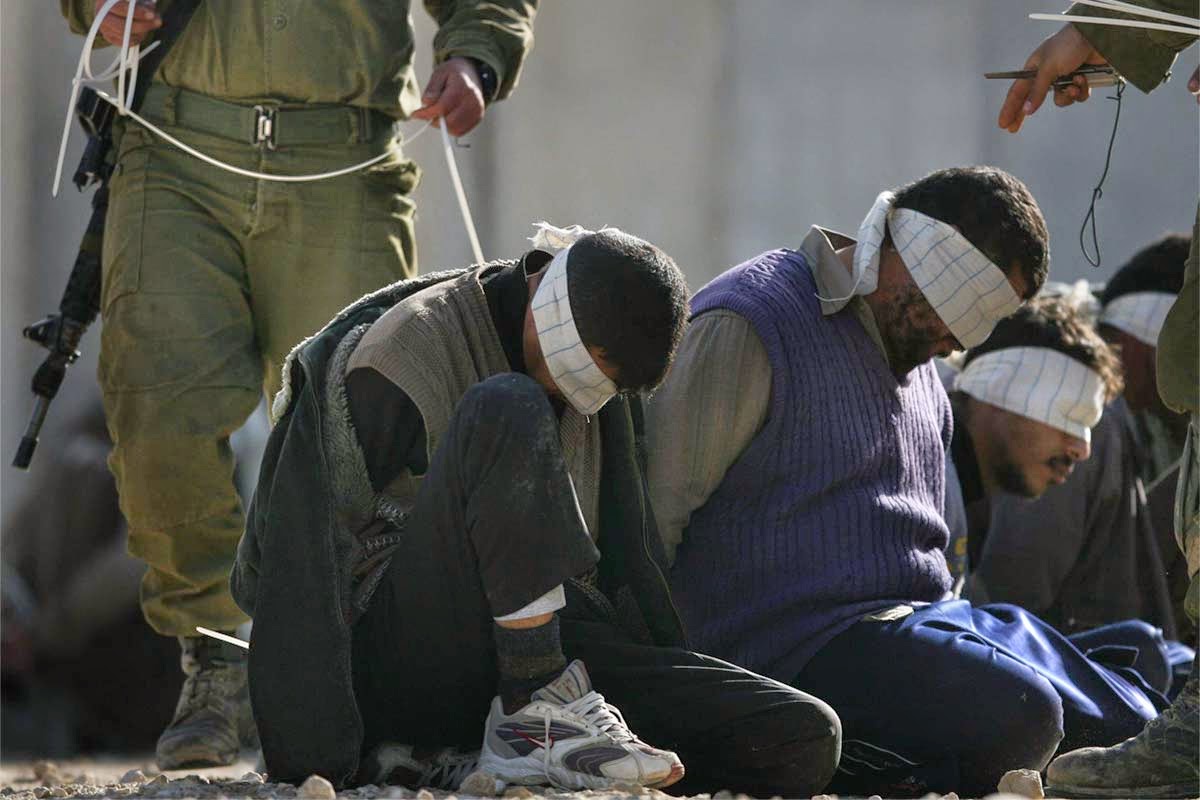The Israeli Security Agency, ISA, has been involved in torturing Palestinians since Israel’s formation in 1948. The use of torture in Israeli custody is systemic and legalized under Israel’s law.
The example of Samer Arbeed was one of the main cases exposing Israel’s systemic use of torture against Palestinian prisoners.
On September 25, 2019, Israeli troops stormed Arbeed’s home in Ramallah. They seriously tortured him before transporting him to Jerusalem’s Al Moscobiyye detention center. He was hospitalized two days later due to extreme torture and remained in stable care for several weeks.
The Israeli Secret Service had been given permission by a judicial authority to use “exceptional means” to collect intelligence in this situation without going through the courts.
Shortly before Arbeed’s arrest in August 2019, Israeli forces launched a targeted campaign against Palestinian teenagers, arresting more than 40 students in Birzeit University. Following Arbeed’s imprisonment, the number of arrests rose, and since many of the students were refused access to attorneys, most potentially many of them were tortured.
The acts described in prior lines are not unprecedented. The Israeli Intelligence Agency (ISA) has been torturing Palestinians using a range of tactics since the state of Israel was established in 1948. While many countries have enacted domestic legislation banning torture, Israel has not passed domestic legislation prohibiting torture, and its courts have permitted torture to be used if necessary.
Torture is prohibited by international law, including customary international law and a number of international and regional treaties. “No one shall be subjected to torture or to cruel, inhuman, or degrading treatment or punishment,” says Article 5 of the Universal Declaration of Human Rights.
The Third Geneva Convention forbids “discrimination against life and person, including all acts of murder, mutilation, inhuman punishment, and torture.” “No physical or moral force shall be committed against covered individuals, in particular to extract information from them or from third parties,” the Fourth Convention says.
Thousands of Palestinian political prisoners are detained and imprisoned by the Israeli military prison system each year, the majority of which are from the 1967 territories. Since the takeover of the West Bank and Gaza Strip began and martial law was imposed in those areas, Israel has arrested over 800,000 Palestinians; about 40% of the male population and 20% of the total population.
“Administrative detention”, as established by Israeli law, requires the military to retain a hostage for up to six months without charge.
The “charges” should be kept confidential and the period can be prolonged forever.
As a result, both the prisoners and their attorneys have no idea what they’ve been charged with. Those held in this manner are told whether they will be released or whether their incarceration will be extended beyond the six-month term on the last day of the six-month duration.
This activity has been listed as a form of “psychological torture” by the Prisoner Support and Human Rights Association (Addameer).
The following are some of the most popular strategies used by Shin Bet and interrogators, according to Addameer:
Sexual Torture
Rape, physical assault, and threats of sexual violence are all used against Palestinian men, women, and children. Detainees are often subjected to remarks about themselves or their family members, which is known as verbal sexual assault.
Since prisoners are often ashamed of sexual abuses, this form of torture is often thought to be successful.
Rape, physical assault, and threats of sexual violence are all used against Palestinian men, women, and children. Detainees are often subjected to remarks about themselves or their family members, which is known as verbal sexual assault.
Since prisoners are often ashamed of sexual abuses, this form of torture is often thought to be successful.
Body Position Torture
Detainees are forced to face down while their hands are bound behind their backs and their feet are shackled. During the interview process, they are left in those conditions for lengthy periods of time.
Beating
Detainees are often beaten, either by hand or by objects, and are sometimes knocked unconscious.
Lack of Sleep
Detainees are denied the right to relax or sleep and are subjected to lengthy interview sessions.
Family Members
Threats against family members: Detainees are exposed to threats of abuse aimed at family members in order to force them to divulge details. Family members are kept detained and questioned in a separate room in order for the detainee to be able to hear them being tortured.
Solitary Confinement
Detainees are kept in isolation or solitary confinement for long durations.
Several Palestinian detainees died as a result of being forcibly fed in the 1970s and 1980s, prompting Israel’s High Court to issue a cease-and-desist order.
In an effort to end Palestinian hunger strikes, a Knesset bill passed in 2012 restored the legitimacy of force feeding. The World Medical Association reported in a June 2015 address to Israeli Prime Minister Binyamin Netanyahu that “force feeding is brutal, often painful, and against the concept of human autonomy.”


















